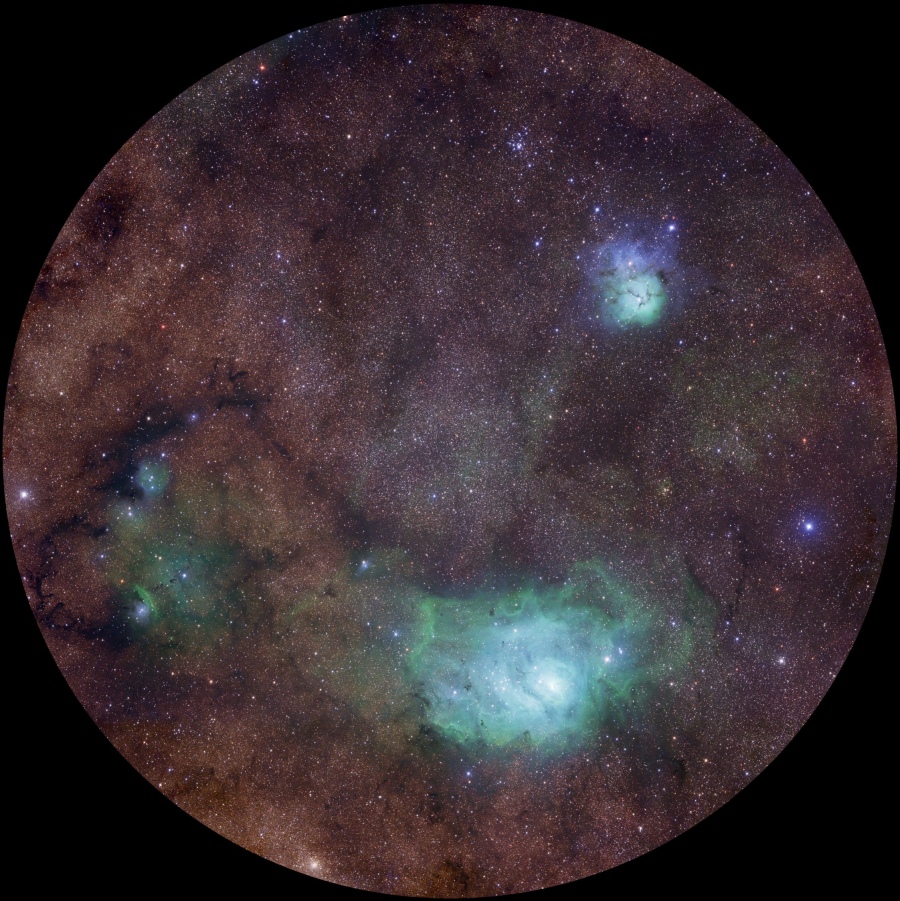OCTOBER 12, 2012
Pan-STARRS and Nebulae
EXPLANATION
A single field from the world’s most powerful survey instrument captures this spectacular skyview. Looking toward Sagittarius, the scene spans nearly 3 degrees or six times the width of the Full Moon. At bottom, upper right, and lower left it covers the Lagoon Nebula (M8), the Trifid Nebula (M20), and NGC 6559, in the crowded, dusty starfields of the central Milky Way. The adopted color scheme shows dust reddened starlight in red hues and normally red emission from hydrogen atoms in green. Built and operated by the Pan-STARRS project, the instrument features a 1.4 gigapixel (billion pixel) digital camera and telescope. Pan-STARRS, the Panoramic Survey Telescope & Rapid Response System, is intended to scan the skies for potentially dangerous near-earth asteroids and comets, exploring the Universe with a unique high resolution, wide field view.
Image Credit
PS1 Science Consortium
Processing:
Nigel Metcalfe, Peter Draper
(Durham Univ.),
Gene Magnier
(IfA Hawaii)


